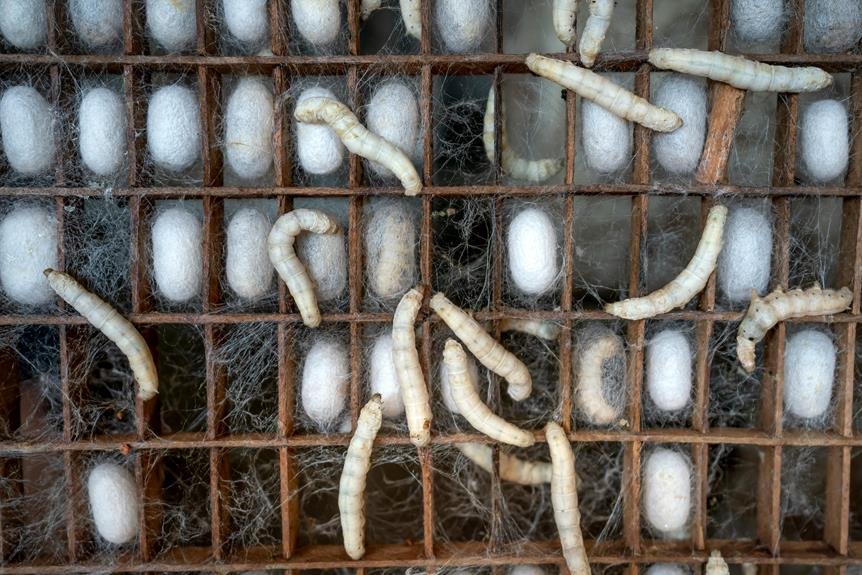
To maximize muscle growth, ensure you consume enough protein as it serves as the building block for muscles, aiding in their repair, growth, and maintenance. After exercise, tiny tears in muscle fibers occur, and protein supports their repair and rebuilding. It is crucial to have adequate protein intake aligned with your body's needs for muscle development, aiming for 1.2 to 2.2 grams per kilogram of body weight daily. Timing your protein consumption post-workout can further aid muscle repair and growth as muscles are more accepting of nutrients at this time. Remember, a nutritionist can provide personalized guidance for optimal protein intake to support your fitness goals.
Importance of Protein for Muscle Growth
To achieve optimal muscle growth, you need to understand the crucial role that protein plays in the process. Protein is the building block of muscles, essential for repair, growth, and maintenance. When you engage in strength training or any form of exercise that puts stress on your muscles, tiny tears occur in the muscle fibers. This is where protein steps in to help repair and rebuild these fibers, making them stronger and larger than before.
Protein provides the necessary amino acids that are vital for muscle protein synthesis, the process through which muscles grow. Without an adequate intake of protein, your muscles may struggle to recover and grow efficiently. Therefore, ensuring you consume enough protein through your diet is paramount for muscle development.
In addition to repair and growth, protein also plays a crucial role in preserving lean muscle mass, especially during periods of calorie restriction or intense physical training. By prioritizing protein intake, you can support your muscles' growth and recovery, ultimately leading to improved muscle strength and size.
Protein Synthesis and Muscle Repair
Protein synthesis and muscle repair are essential processes for your muscle growth and recovery. When you engage in physical activity, especially resistance training, tiny tears occur in your muscle fibers. This damage triggers your body to repair and rebuild the muscle tissue, a process known as muscle protein synthesis. Proteins play a crucial role in this repair process, as they provide the building blocks necessary for muscle growth.
During muscle protein synthesis, amino acids derived from the proteins you consume are used to repair and strengthen the damaged muscle fibers. This process not only repairs the existing muscle but also allows for muscle hypertrophy, or growth, to occur. Adequate protein intake is crucial to support this repair and growth process. Consuming protein-rich foods or supplements post-exercise can help optimize muscle protein synthesis, facilitating faster recovery and muscle development.
Incorporating protein into your diet at the right times can enhance muscle repair and promote gains in strength and size. Stay tuned to learn more about the optimal protein intake for maximizing muscle growth.
Optimal Protein Intake for Gains
For maximizing muscle growth, ensuring your protein intake aligns with your specific body needs is key. The optimal protein intake for gains varies depending on factors such as your weight, age, gender, and activity level. A general guideline is to consume around 1.2 to 2.2 grams of protein per kilogram of body weight per day. However, if you're engaging in intense resistance training or are looking to bulk up, you may benefit from aiming for the higher end of this range.
It's important to distribute your protein intake evenly throughout the day to support muscle protein synthesis consistently. Aim to include a good source of protein in each meal and snack. Foods such as lean meats, poultry, fish, eggs, dairy products, legumes, and tofu are all excellent sources of protein. Additionally, incorporating protein-rich snacks like Greek yogurt, nuts, or protein shakes can help you meet your daily protein requirements.
Remember that individual protein needs can vary, so it may be beneficial to consult with a nutritionist or dietitian to determine the optimal protein intake for your specific goals and lifestyle. By fine-tuning your protein intake to meet your body's requirements, you can better support muscle growth and overall performance.
Timing Protein Consumption for Results
Maximizing the benefits of protein consumption involves strategic timing to optimize results for muscle growth and recovery. To make the most of your protein intake, it's crucial to consider when you consume protein throughout the day.
Firstly, consuming protein within 30 minutes to an hour after your workout can be highly beneficial. During this post-workout window, your muscles are more receptive to nutrients, aiding in muscle repair and growth. A protein shake or a meal containing lean protein sources like chicken, fish, or tofu can help replenish amino acids and support muscle recovery.
Furthermore, spreading out your protein intake evenly throughout the day is essential. Aim to include protein in each meal and snack to sustain muscle protein synthesis consistently. This approach can help maintain a positive nitrogen balance, which is crucial for muscle growth over time.
Conclusion
So, remember to prioritize your protein intake for muscle growth. Make sure to consume enough protein to support muscle repair and growth, especially after workouts. Timing is also key, so aim to have protein-rich meals or snacks throughout the day.
By focusing on your protein intake and timing, you can maximize your muscle gains and achieve your fitness goals more effectively. Keep up the good work!




